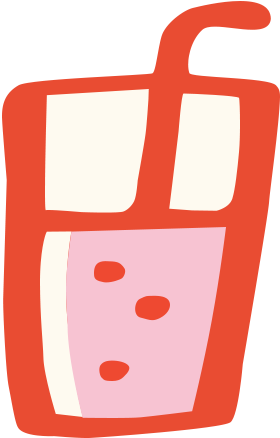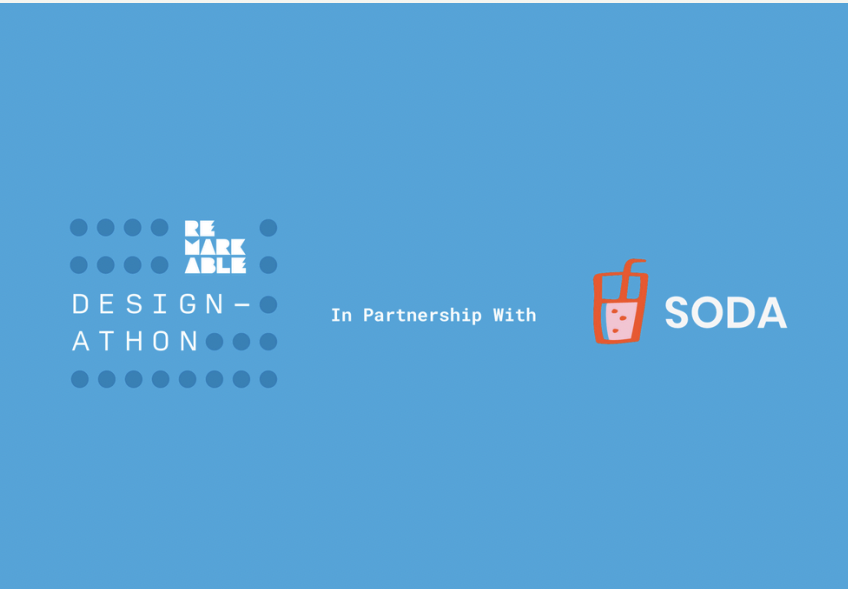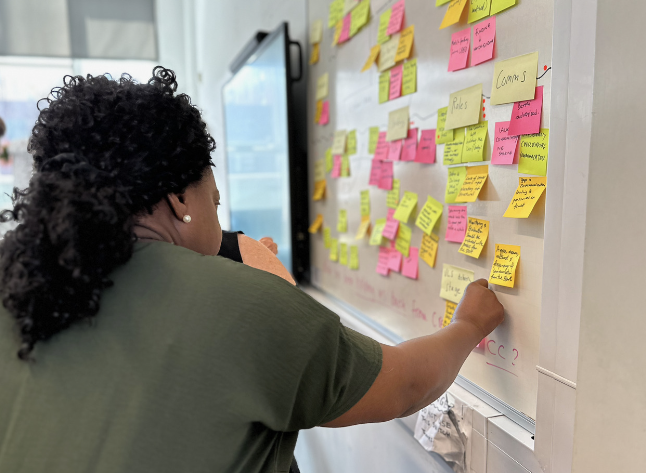
Soda's Impact Report 2023
Soda is a labour of love and lived experience which began in 2022. We found a gap and we’re committed to addressing it.
People living with disabilities, chronic illnesses, neurodivergence and facing health inequalities (over 20% of the population) must be involved in the design of the world around us. Lack of participation of these groups results in less accessible and less inclusive solutions.
By enabling better participation of disabled people in design, our mission is to foster an environment where systems, services, and products take account of the vast spectrum of human needs – from the outset.
We are proud to be a founding team made up of 75% disabled, chronically ill and neurodivergent people, with over 75% of our mentors and advisers who we have engaged as the same.
As founders of a social impact organisation, we’re big on collecting impact data. It’s our roadmap, showing us what’s working and what’s not. When we openly share our wins, it builds trust with everyone involved – our backers, our clients, our community, and the people we are doing our work with and for. Having this data lets us adapt and tweak our strategy as we go, so we can have an even bigger impact as we develop and grow.
This report brings together our impact over the past year. It is an invitation for you to see what we have been working on, and the impact it has had on the communities we’ve engaged with. This is our first impact report and we are excited to share it with you!
You can read the report on this webpage, or download it (in accessible version) through the link below.
Soda's mission and aims

Our Values
Foster Belonging
Through opportunities for long-term involvement in Soda’s work and community, we ensure people we work with feel they belong to a collective that is wider than one single design process. We take a trauma-informed approach which acknowledges that people bring different histories with them which can impact their sense of belonging in the present.
Centre Accessibility
Accessibility is woven into how we work; we ensure that access needs are always considered across cognitive, physical, sensory, mental,, non-visible, undiagnosed disabilities, and neurodiversity. We recognise that access benefits all, not just people who live with disability. We are committed to going beyond compliance to accessibility standards and always learning to adapt through new approaches.
Design Justice
We are committed to fighting oppression and prejudice. We follow the principles of design justice, which centre decolonisation and the perspectives of intersectional identities, including QTBIPOC people. We are committed to an anti-racist way of working and actively look for opportunities to bring a more equitable approach to design processes.
Reflect and Learn
Inclusion and resisting prejudice is a journey; there are always new ideas and approaches to iterate and improve from. We recognise that we don’t always get it right. We are curious and committed to learn and adapt our own practice from every design process, and are always open to change.
Our Approach
Centring lived experience
We support the participation of people with lived experience of disability, chronic illness, and neurodivergence, and those facing health inequalities and place this at the centre of the design process.
Inclusive design learning
We create cutting-edge learning programmes, workshops and events delivered by disabled experts to shift mindsets and transform how organisations work.
Participation
From creative co-design sessions to large-scale, co-produced health projects, we're all about finding and implementing the right engagement strategy for projects.
Research and insights
We connect organisations with a tailored community of disabled, chronically ill and neurodivergent innovators to provide insights to barriers, and find solutions to new and existing problems.
Impact: Centring lived experience
We centre the participation of people with lived experience of disability, chronic illness, and neurodivergence, and those facing health inequalities, in our design processes. We value their expertise and view them as key agents for making real change happen. Everyone we bring on board through Soda gets paid for their time, and we make sure our partners recruiting participants do the same. Collaborating with diverse communities across the UK is a real highlight of our work.
“Thank you for providing what felt like a safe place where our needs are respected and our input is valued.”
203
People with lived experience were involved
60+
Disabled, chronically ill & neurodivergent
80
Innovators joined Soda's built community

Image description: a photo of a group of people sitting in chairs, in a line indoors. There are four people in the photo, three women and one man. The man is in the foreground writing on a yellow post-it note. The background includes a wall, covered in posters and some tables.
Photo taken at a Soda co-production session
Impact: Inclusive Design training & learning
Case study, Remarkable Tech
In 2023, Soda developed an Inclusive Design training and learning programme in partnership with Remarkable Tech. This programme guided ventures through a 6-week programme to create products that directly addressed three challenges in Disability Tech: Employability (Future of Work), Pain Communication, and Inclusive AI. Soda’s training enables idea and solution generation developed by founding teams to centre disabled user involvement from the outset.
“We have now shaped our solutions considering a broad cross-section of human perspectives, abilities, and backgrounds enabling us to create products where everyone is included.”
39
Prototypes
9/10
Participant rating
14
Pitches

Image description: a screenshot of Remarkable Design-athon logo in white writing, next to ‘in partnership with’ Soda’s logo in red and pink of a cup, with a straw and bubbles in the liquid.
Impact: Co-production for health equity
Case study, co-produced community health funds for the NHS:
For North East London Health and Care Partnership we worked with the NHS across seven Local Authorities, and Voluntary, Community and Social Enterprise (VCSE) groups to co-produce and deliver a series of community health funds. We supported these groups to determine health priorities in the region and undergo a participatory grant-making exercise to allocate funds to local community efforts to address these. The grants were aimed at supporting local social prescribing activities for underserved population groups.
21
Cross-stakeholder sessions
50
Community/ resident participants
82
Community health solutions funded

Image description: a photo of a black woman with her arm out sticking a post-it on a wall, alongside a large set of post-its. The person is indoors. In the background, there is a white man doing the same.
Photo taken at a Soda co-design session
Impact: Research and Insights
Case study, Accessibility of Sport and Fitness in the UK:
Through our partnership with The Disability Policy Centre we are exploring ‘The Power of Sport’ to identify barriers and solutions to improve participation, inclusion and accessibility to sport. We are looking into how accessible fitness tech, physical participation, and spectatorship are. The findings of the research will be launched in 2024.
10
Community researchers
25
Video insights
3
Expert interviews

Image description: photo of a white woman (Charli) standing behind a podium, speaking to an audience. The front row of the audience is visible.
Photo taken at Soda’s Crowdbacker pitch at NatWest HQ, London
Impact: policy influence and public spaces
Soda’s work has been selected and featured in:
- UK Government Department for Health and Social Care’s October 2023 policy paper – as a case study for priorities for innovation and scaling in adult social care (in relation to our work with the NHS in London).
- Croydon Council’s Public Health Report – where Soda’s recommendations on how to strengthen local capacity in the wake of the pandemic were included.
- The Good Side’s list of 5 organisations amplifying disabled voices and experiences, alongside Scope and RNIB
4
Blogs authored
Three guest posts covering topics from patient advocacy, disability and financial resilience, and Founder advice series
3
Podcast features
On health and disability tech, access needs and independence, and personal experience with TBI and chronic illness
2
Keynote speeches
Including for an audience of 500+ NHS workforce and 100+ health/disability tech start-ups, investors and corporates

Acknowledgements and thank yous
Thank you to the wonderful team at Year Here, particularly Diarra Smith, Anna Markland, Zoe Stanton and Jack Graham; to Unltd for funding and supporting us; to all the kind people who offered their time and advice as mentors including Yasmin Keats, Robbie Bates, Angel Perez; to our partners the Disability Policy Centre and Chloe Schendel-Wilson; to partner and advisor Gita Malhotra; and to our 80-strong Soda disabled, chronically ill, and neurodivergent community members, particularly those who were involved in our very first Soda co-design sessions (Jenny McGibbon, Hannah Turner, Athene Knüfer, James Padolsey, Neelam Heera – Shergill, Rae Durran, Emma Banda, Chris Shapiro) to help form Soda to what it is today. We can’t wait to continue to grow and involve you, implementing our ideas and creating even more impact in the process.
Thank you to George Miller and the team at Remarkable Tech; Mark Scott, Jagan John and Lauren Moy at NEL NHS; Lianna Martin and Bylan Shah at TPHC; Gina Zelent at Croydon Council.
Alex Eisenberg, Charli Skinner and Oli Clayton
Team Soda x
